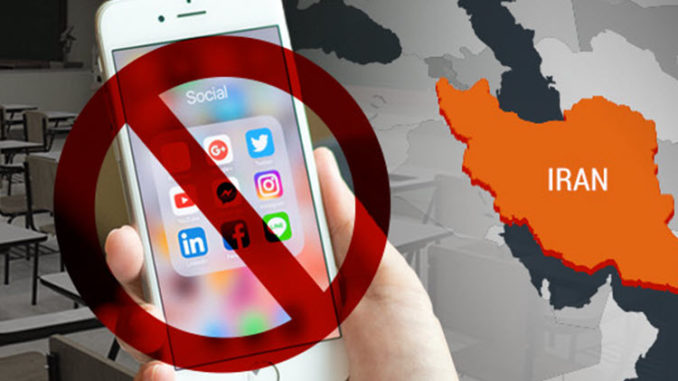
Iran’s state media reported on Sunday April 15 that the regime’s ministry of education would ban the use of foreign social media in schools. It is apparently part of an effort by the government to counter their use during protests and encourage the use of domestic social networks to have control over them.
Clearly is it an attempt by the government to limit the influence from foreign social media applications in a country where the people are oppressed in many areas of life.
The people of Iran are very keen on social media applications, especially the young people, like their peers across the world. However, the Iranian stablishment sees this as a major threat as the social media expose the people to other ways of thinking and living. It is via these types of apps that the Iranian people can see the freedom of expression that many others in the world can enjoy without fear of punishment or arrest.
Telegram is a very popular instant messaging application that has around 40 million users in Iran. Another popular app is Instagram. It is used by many Iranian companies to communicate information to clients, as well as being used as a personal social app.
The Iranian government has already blocked several social media platforms, in particular Twitter and Facebook. However, this does not mean that they are not popular in Iran because they are. The tech savvy people of Iran are able to bypass the government blocks with the use of a VPN (virtual private network).
At the end of last year, the people took to the streets in large numbers to protest against the Iranian official’s mismanagement of the country’s resources and the widespread corruption. The Telegram app was used during the organisation of the protests and the government decided to temporarily ban it (it described the use of the app as being “counter-revolutionary” and condemned the foreign intervention that was spreading unrest).
So that it can exert even more control on the people, the Iranian government is trying to develop domestic networks. The government is very dubious of all foreign services and wants to keep an eye on the people with its own service.
The government is telling the people that conversations with the domestic applications will be private and will not be monitored. The Supreme Leader himself even said that the government must ensure that the people’s privacy and security on the internet is guaranteed.
There have also been media campaigns about the new domestic apps that have tried to reassure the people that service will continue even if other messaging apps are banned.
Yet, the people of Iran cannot be so easily fooled. They are very aware that they will have no security or privacy on the domestic apps. The people will not willingly give up one vestige of the very little freedom they currently have. If Telegram or any other applications that are widely used in Iran are banned, one thing is certain, this will not stop the people finding a way around it.

